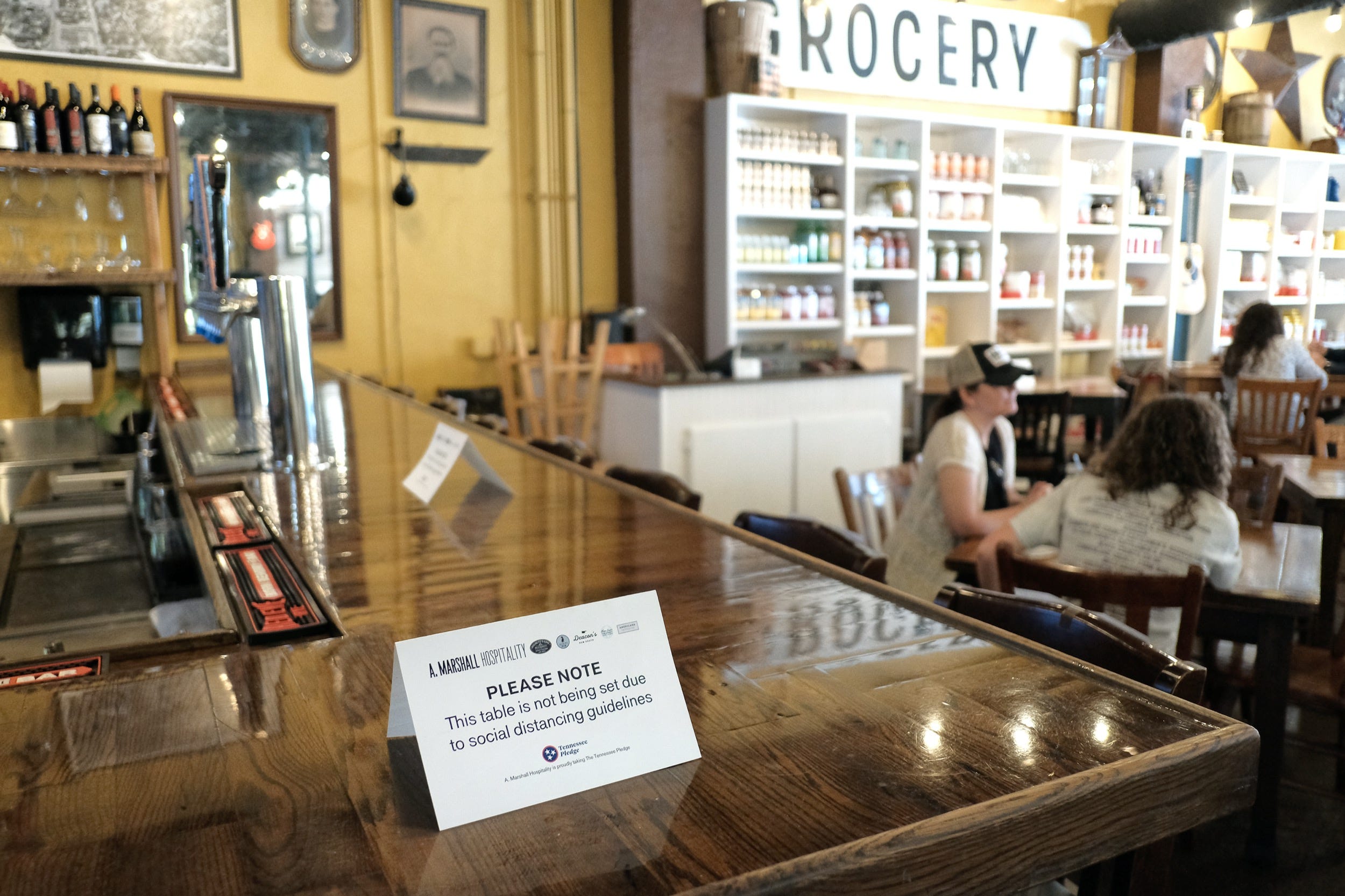5 signs you should avoid eating inside a restaurant
by Andrea Michelson
- Restaurants are reopening at reduced capacities, but it’s not always safe to dine out.
- People who are at a high risk of contracting the coronavirus and those who are experiencing possible symptoms should stay home.
- Ventilation and crowding at restaurants should also affect your decision.
- Visit Insider’s homepage for more stories.
At this point, restaurants across the US and around the world are open again in some capacity. But that doesn’t mean that dinner reservations are something to be taken lightly.
In the US, guidance for restaurant reopening varies state-by-state, and it’s up to the eateries to space out their tables and create protocols for pandemic dining.
While some restaurants have done their part by opening outdoor patios, seating diners six feet apart, and implementing creative social distancing strategies, eating out still comes with a degree of risk. A Centers for Disease Control and Prevention report out this week found that people who tested positive for the coronavirus were approximately twice as likely to have reported dining at a restaurant than those who tested negative.
Prospective diners should consider this risk before going out to eat, especially if they’re considering sitting inside a restaurant as patio spaces close for the fall and winter months. Here are five signs that you may be better off dining at home.
The rate of infection in your area is high
If the coronavirus is spreading swiftly in your area, going out to eat carries a higher risk. You can get an idea of the infection risk in your state or county based on two figures: the basic reproduction number and recent case counts.
Public health experts use the basic reproduction number, or R0 (pronounced R-naught), to determine how quickly the virus is spreading. R0 refers to the average number of people a patient is expected to infect in a population that has no immunity. An R0 greater than 1 (noted in red on this graph) indicates that the virus is spreading quickly and could be a signal to stay home.
You can also tune into briefings by your local government officials to hear whether case counts are rising or falling in your area. If there’s been a recent uptick, you may want to postpone your reservation.
The restaurant is poorly ventilated
A building’s ventilation and air conditioning can help fight coronavirus transmission if it’s working properly, or increase the spread if the system is faulty.
While it’s difficult to judge a building’s ventilation system just by walking in, open windows are a good sign that fresh air is entering the space. A restaurant with no windows at all may be a cause for concern.
Another rule of thumb is that older buildings are generally safer than new ones, HVAC engineer Theresa Pistochini previously told Business Insider. Designers started sealing buildings more thoroughly in the 1970s to conserve energy use, but that means that a newer building with a faulty ventilation system could be a perfect storm for coronavirus transmission.
The restaurant looks crowded
While a big crowd may have been the hallmark of a must-try restaurant in pre-pandemic times, you’re better off in an empty dining area these days.
Some restaurants have implemented physical barriers to maintain distance between seated diners, but there’s still a possibility of crowding in waiting areas or restrooms. Restaurants operating at lower capacities minimize this risk.
When calling ahead to make a reservation, you can ask the host how spaced apart the tables are inside the restaurant, or what percent capacity the restaurant is operating at. Capacity regulations vary by jurisdiction and are constantly changing, so it’s good to check before booking.
You have a dry cough or fever, or generally don’t feel well
If you have any symptoms of COVID-19 — early symptoms can include dry cough, shortness of breath, and fever — you should avoid public spaces and get tested as soon as possible.
COVID-19 symptoms can vary widely, so anything from diarrhea to a headache could be cause for concern.
Keep in mind that you’re not only putting yourself at risk by dining out, but you also may be endangering the people around you if you have the virus.
You’re over 50 or have pre-existing health conditions
Older adults are especially vulnerable to contracting COVID-19 and getting seriously ill from it, and that risk only increases with age.
“I would advise those that are above 50 and/or have pre-existing health conditions to avoid going out to eat altogether,” Amit Malik, former clinical director of operations for various hospitals and health systems including New York Presbyterian Hospital, previously told Insider.
The over-50 cutoff isn’t a clear marker, and underlying health conditions like heart disease, diabetes, and lung disease can also increase a person’s risk of getting sick. If you’re older or not in great health, you should err on the side of caution when it comes to non-essential outings.
Read the original article on Insider